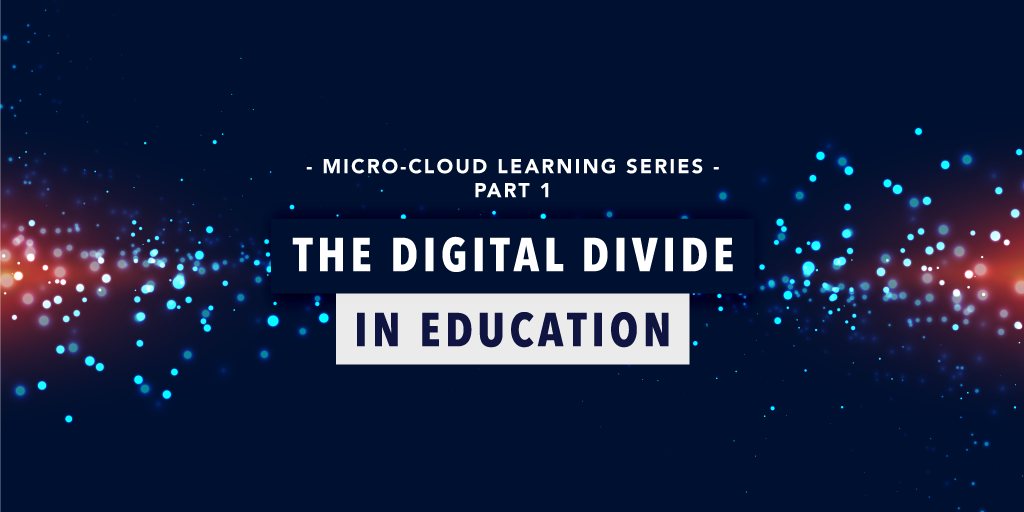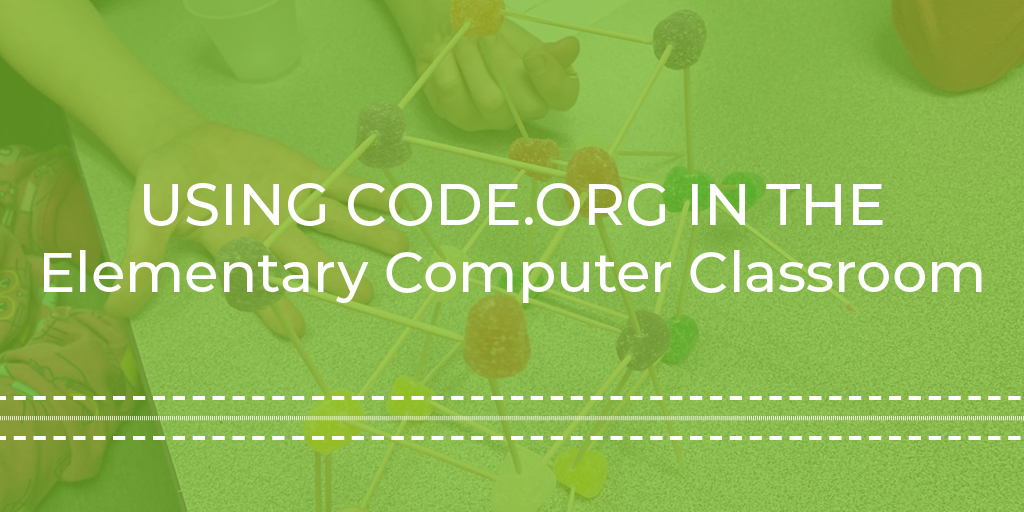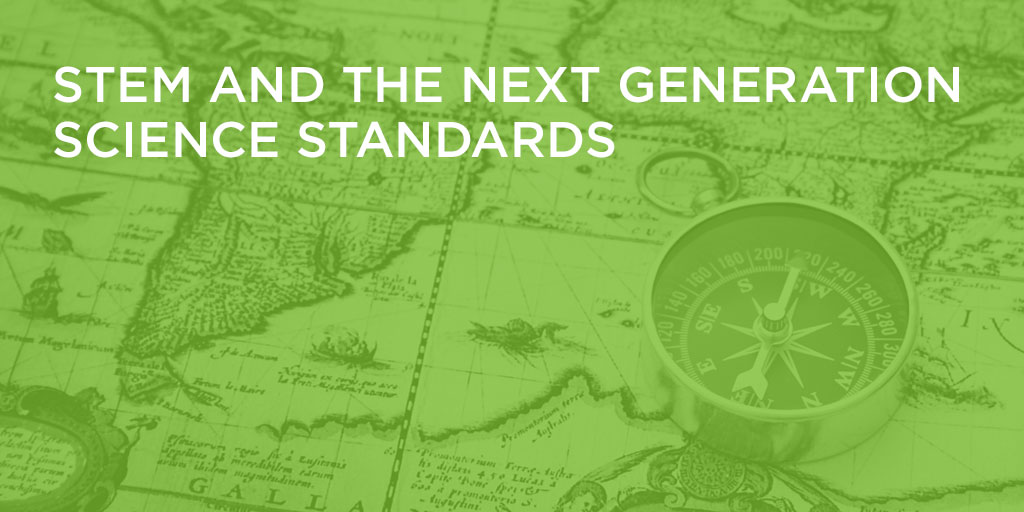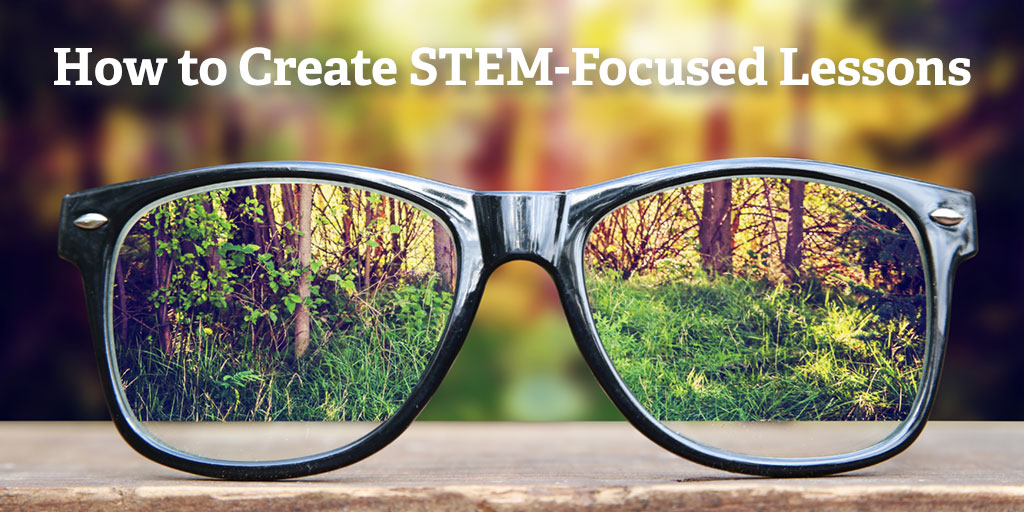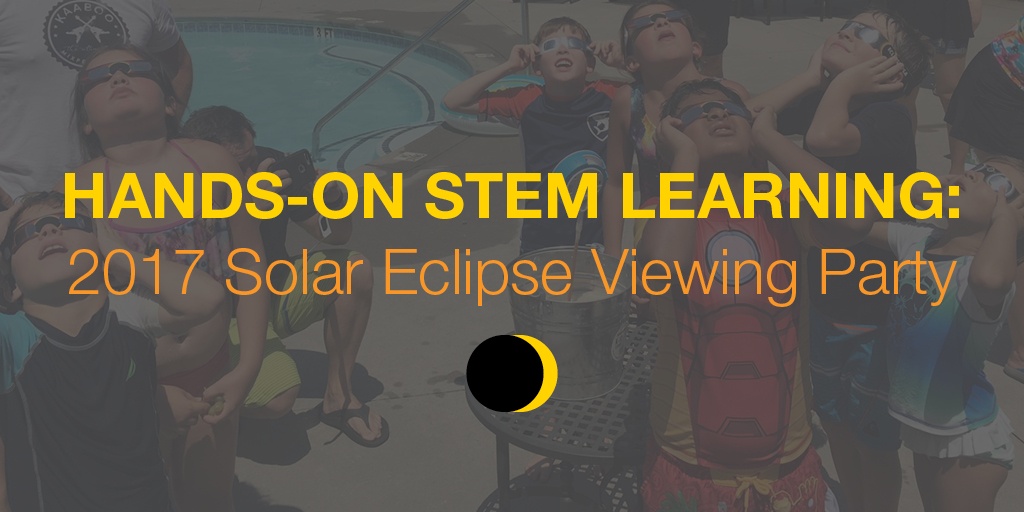The potential to create a better world through global learning initiatives has never been greater. All of the wisdom and knowledge ever created has been captured, digitized, and catalogued to allow young people to learn and grow faster than ever before. World leaders from both the government and technology sectors have rallied over the last decade to increase learning absorption through e-learning initiatives that put this knowledge at the fingertips of students everywhere in the world.
Micro-Cloud Learning Series Part 1: The Digital Divide in Education
Topics: STEM Lessons, Coding
Back in September, I was sitting in a district computer teacher meeting discussing activities we used in our classrooms. My colleagues mentioned how they participate in the Hour of Code and other coding activities. Meanwhile, I was sliding down in my seat, embarrassed that I wasn’t doing the same cool activities as the others.
I have only been teaching computer class for five years, and I’m still learning how to balance life as a teacher/librarian as well as a technology instructor. Still, I want to do well on the technology side of my job. Instead of sitting around and feeling incompetent, I got online and found out more information about Code.org—an organization that sponsors the Hour of Code and a website that provides resources for teachers. Code.org also offers many professional development opportunities; I found a workshop close to home and signed up.
Topics: STEM Lessons, Coding
Exciting news: November 8, 2018 will mark the third Boxlight STEM Day (#BLSTEM)! Just like last time, students will work with their classmates in a hands-on, inquiry-based learning event designed to help them learn critical STEM skills and understand how STEM disciplines apply to the world around them. And as before, Boxlight will provide the lab experiment—the event will involve using our wireless Labdisc portable STEM lab, so it’s less “same old classroom activity” and more “exciting new real-world work.”
The event is open to every school that has the Labdisc data logger. No matter where you are, as long as you have a Labdisc, your class can join in the learning fun. This year, students will use the Labdisc to perform simultaneous experiments to observe and measure the light intensity of different light sources. Think about how incredible it will be to conduct this experiment and share data along with other science classes across the US and Latin America!
Topics: STEM Lessons, STEM
The urgency for STEM education has been fueled by a workforce imperative and the need to supply an increasing demand for STEM jobs in the United States. This coupled with the new NGSS brings into focus the need for educators to understand the benefits to this unique pairing. Think of integrated STEM instruction as a road map and the NGSS as the GPS or compass. Both direct you to the same destination, however while one gives a general route, the other provides a more guided approach to finding your way with the option of many alternate routes—whatever suits you as a teacher and, more importantly, the individual needs of your students. The overlap provides teachers with more room for experimentation with lesson plans and curriculum activities, not additional work.
Topics: STEM Lessons, STEM
STEM learning is at the forefront of education today—and it shows no signs of slowing down. The focus on STEM subjects (science, technology, engineering, and math) is a necessity in order for Americans to be competitive in the job market in future years. Careers in these fields will continue to grow, so it's imperative that we make STEM a priority for today's students in order to prepare them for the jobs of tomorrow.
Topics: STEM Lessons, STEM, STEAM
NSTA 2018: A Collaborative, Hands-On STEM Workshop to Make Science Relevant
We’re back from the National Science Teachers Association’s 2018 National Conference on Science Education in Atlanta, Georgia! PowerUpED graciously gave us and Globisens, makers of the Labdisc portable STEM lab, the chance to collaborate with them on a workshop called “Make Science Relevant and Engaging,” which centered around the Labdisc mobile data logger.
Topics: STEM Lessons, STEM
February 16 will mark the second annual Boxlight STEM Day (#BLSTEM)—and there are a few new details, so read on to learn more!
First of all, some things won’t change. Just like last year, students will work with their classmates in a hands-on, inquiry-based learning event designed to help them learn critical STEM skills and understand how STEM disciplines apply to the world around them. And as before, Boxlight will provide the lab experiment and the event will involve using our wireless Labdisc portable STEM lab, so it’s less “same old classroom activity” and more “exciting new real-world work.”
Topics: Science Lessons, STEM Lessons, curriculum, STEM
Hands-On STEM Learning: 2017 Solar Eclipse Viewing Party
On August 21, Boxlight hosted a solar eclipse viewing party for students from Fulton County Schools in Johns Creek, Georgia—and added an inquiry-based learning element to the event through use of the Labdisc portable STEM lab. Nearly two-dozen people attended the viewing party, with children ranging from elementary students to seventh graders along with executives from Boxlight.
Topics: Science Lessons, STEM Lessons, 21st Century Skills, STEM
We all know that children belong outdoors, but when they become our students, the tendency is to keep them behind four walls tied to electronic devices, PowerPoint lectures, and computers. Well, I am here to tell you that you can go outside with students and see productive results. Moving your class outside engages a world of fresh stimuli for the senses that have the amazing ability to open up students to new insights and real-life application of the concepts they are learning.
Topics: STEM Lessons, 21st Century Skills, Labdisc, STEM
Modeling Phenomena for Next Generation Science Standards
Image by Scott Robinson
If you’ve looked into the Next Generation Science Standards (NGSS), you may have found that there are several standard points indicating that students should learn about models as well as work with them. You have probably already recognized the importance of models since they are an effective way to explain complex phenomena, yet there are a lot of misconceptions as to what a model truly is.
Topics: STEM Lessons, Labdisc, STEM

